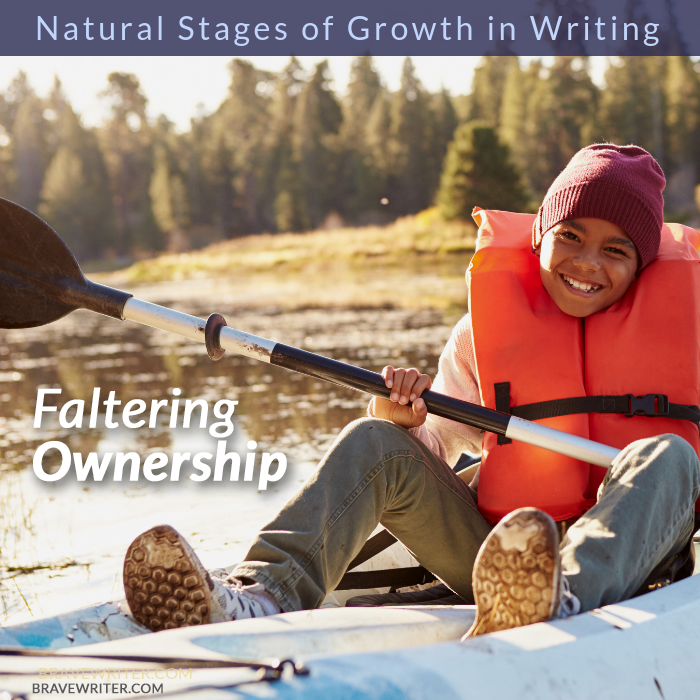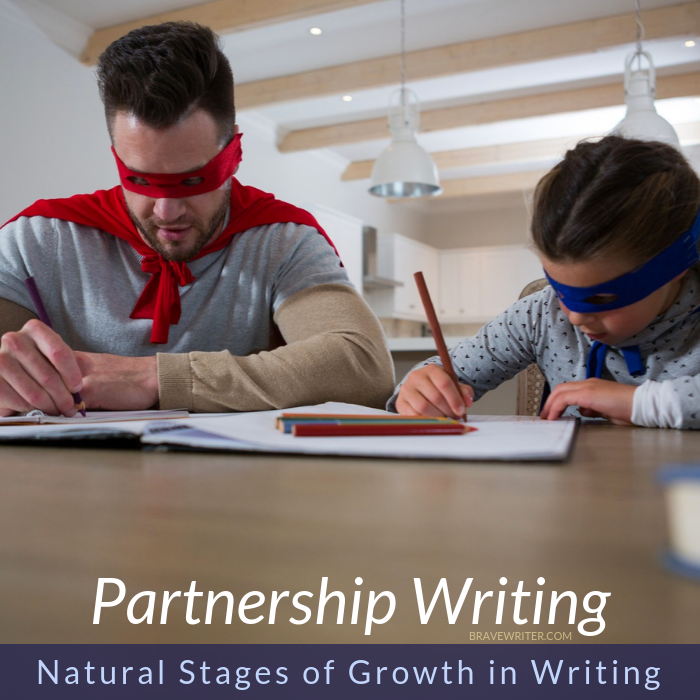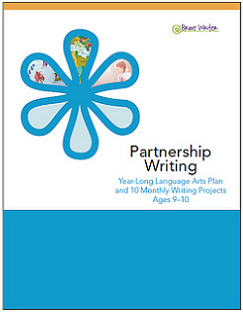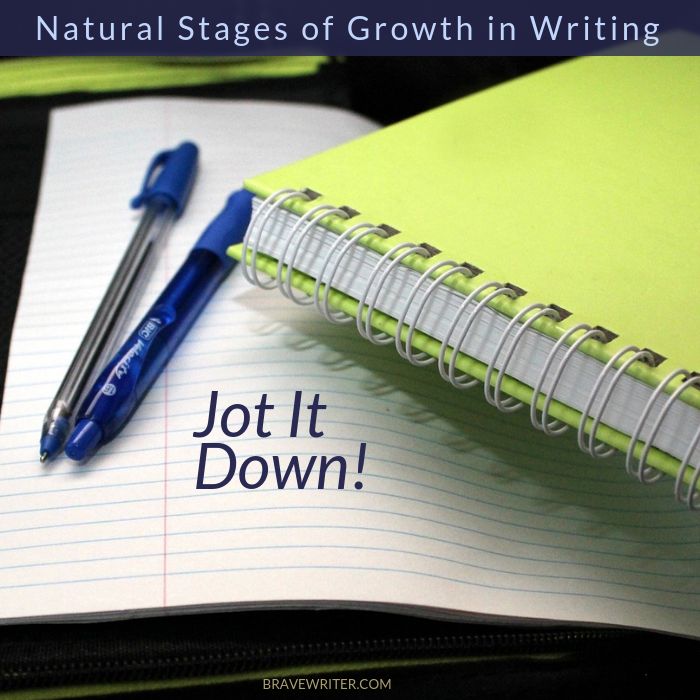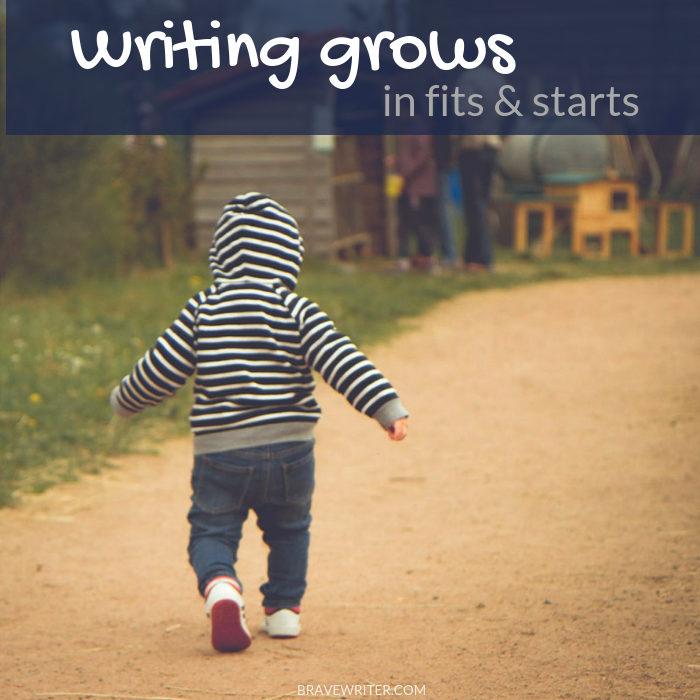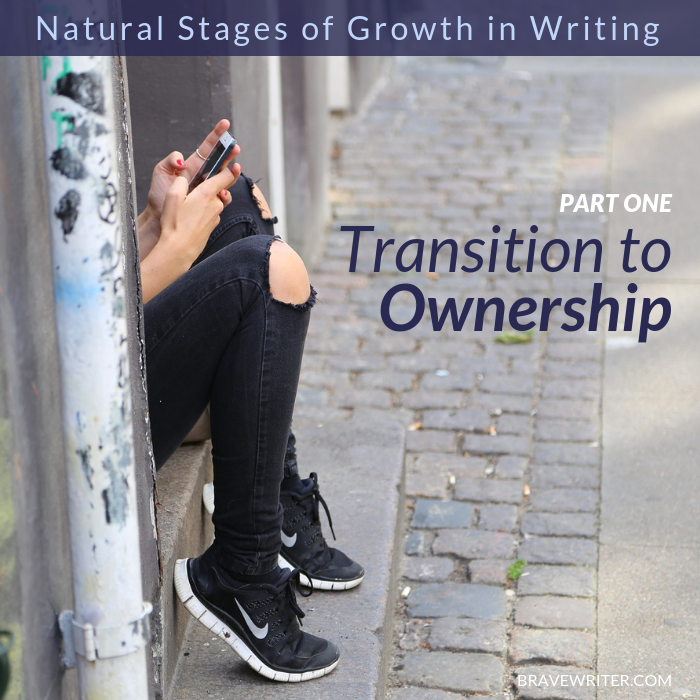
This is our first of a two part discussion of the Transition to Ownership stage of writing growth. This is the time when your 13-14 year olds (8th-9th graders) are making the somewhat treacherous journey from adorable, fact-centered child to rhetorical imagination (the awareness that the world is inhabited by unlimited numbers of perspectives). Noah helps me make this discussion especially engaging.
We’re having a great time making these podcasts (we hope many of you are listening). Share them around, please! I find myself utterly charmed by the chance to express all this build up of thinking I’ve cultivated over years of writing instruction and ponderings.
Julie
Quick footnote: there are a couple of gaffes – the way there are when you record yourself mid-roll talking. For instance, I say “posterior” baby when I mean “post-term”! 🙂
To help grow writers at this stage, Help for High School is a self-study program written for and to teens, and the Boomerang provides teens with continued copywork and dictation practice—as well as quality literature to read and examine.
The Transition to Ownership bundle combines Help for High School and The Boomerang at a discount!
Ready for more?
Below are links to the complete Stages of Growth in Writing podcast series.
Jot It Down!
Partnership Writing
Faltering Ownership
Transition to Ownership Part 1
Transition to Ownership Part 2
Eavesdropping on the Great Conversation

